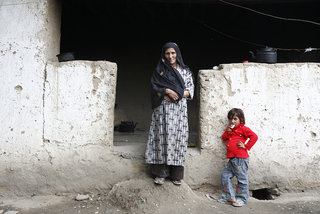Hanno, how did you become a software developer?
Just before I graduated high school I was fairly certain I would end up in Economics. During college I took a few Computer Science classes on top of my Economics curriculum and I quickly discovered I liked programming a lot more than analysing micro-economic models. The concept of creating something new instead of just rehashing other people's ideas really appealed to me. The rest is, as they say, history.
I have been a software developer for over 11 years now, and I still love it immensely. I have worked on for about 10-15 clients, including insurance companies, banks, health care and public transport. I have spoken at 12 international conferences, while actually enjoying it. I used to be terrified of public speaking when I was younger, but it seems I gradually got used to it. Doing something you are quite comfortable with in front of an audience (in my case: playing music and singing) really helps you to get used to 100 pairs of eyes staring at you.
I saw you discussing ethics in software development on Twitter. Why does that matter to you?
Much of it has to do with my Christian faith. As a Christian I try to follow the example that Jesus Christ set when he lived on the earth. He devoted his time mostly to doing good for the people around him. And he specifically noticed the people that were less important in society. So I try to do the same, both in my private and my work life.
 Which topic are you most concerned about?
Which topic are you most concerned about?I am very concerned about the gap between the rich and the poor people. The rich are getting richer, and the poor are getting poorer. And although I can consider myself fortunate that I was born in a rich country with a lot of possibilities for education and career, I realise I could have been a lot less lucky. And if that would have been the case, I would want the rich people to help me out.
I try to share my assets with those who are less fortunate. I am quite enthusiastic about Kiva, a lending platform which supplies loans with low or no interest to boost local economies. Give a man a fish, and you feed him for a day. Teach a man to fish, and you feed him for a lifetime.
What do you consider the biggest challenge for humanity?
I think our biggest challenge is to love each other. Not just those who are special to us, but more importantly the other people: Your neighbours, your colleagues, even your enemies. If everyone would do this, there would be no need for wars and conflicts. Food, money and other assets would be distributed more fairly.
When I talk to people, many express concern about meat mass production or pollution. What could we do to engage in the topics?
Caring about the planet is important, because it shows you care about future generations. No-one can solve this problem on their own, but I try to contribute through a few small things in my life. I eat less meat than I did before, and I go to work by bike whenever I can. I moved my financial life (bank accounts, credit card etc.) to ASN Bank, which invests in socially responsible and sustainable projects only. And every month I donate money to Trees For All, an charity organisation that plants trees all around the world. As I said it does not solve the problem instantly, but it makes me feel good and gives me hope for our future.
I am looking for more impact on important topics while doing my regular work. Do you think that is possible in general?
I need to keep working in software development, because I love doing it and I cannot imagine earning my money in any different field. And there are not many jobs for software developers that directly change the world in a significant way. But that does not mean I cannot make an impact. As is pointed out in Episode 7 of the excellent podcast Soft Skills Engineering, somebody has to write the mainframe app that the bank uses so that charities can use this app to change the world in a significant way. And an insurance company has to insure the charity that produces clean water in underdeveloped countries. It may be directly or indirectly, but we are bound to make an impact in the world.
We take many decisions during projects. Which guidance do we have to navigate these decisions?
While I am developing software I try to think of myself as the end user. Would I feel comfortable with my decisions if I had to use this software on a daily basis? Would I find it acceptable to permit this app to access my contact list? Would I be happy when a website after creating an account immediately registers me for an email newsletter that I have not explicitly signed up for? Asking myself these questions nudges me in the right direction more often than not.
How do you think about selecting industry, customer or project based on your values?
I think if you have the chance to choose a project that clearly improves the world in a profound way, then obviously you should go for it. I have worked on a few medical software projects and the fact that my code helped medical staff to cure people motivated me immensely. At the moment I am working on public transport software, where the goal in itself is entirely different. I find that my motivation focuses on different things now, for example on teaching some junior developers the tricks of the trade.
 Let's be more specific: Would you work for an animal factory? Would you work for a company producing equipment for an animal factory? Would you work for a sweat shop exploiting kids in Asia?
Let's be more specific: Would you work for an animal factory? Would you work for a company producing equipment for an animal factory? Would you work for a sweat shop exploiting kids in Asia?I would not work for any of them. As I wrote earlier I am a big believer in sharing things equally over all people, so any company that violates human rights, exploits kids or does not pay fair wages is a no-go for me - both as a consumer and a software developer for that matter. This in itself is a challenge to say the least, because how do you find out which industries are OK according to this definition? Sure, there are a lot of certification labels that can help you decide (such as UTZ, FSC, Fairtrade), but every once in a while I read stories about these labels that really disappoint me. So I try to do some research on these industries to get to an informed decision.
That being said, there is also a 'grey area' of companies that I might work for, but only if there is no better alternative. For example, I am a big believer in electric- and hydrogen-powered cars. But I might consider working for Volkswagen or Mercedes anyway. The clothing industry is another good example. There are brands that pay their people fairly and there are those that exploit their workers. But there are also a lot of brands 'in between'. I might consider working for them. Who knows, I could perhaps help them to become a fair-paying brand.
Did you ever reject a client or project based on your values?
I have not, actually. But as I wrote before, in theory there are a lot of projects that I would reject based on my values. I think it has not happened until now, because our industry is booming and there are job openings everywhere. So because of that I have so far been able to choose projects that match my values fairly easily.
On the other hand, what would be projects that you would love to work on?
As I mentioned I work in public transport for a while now, and I like the fact that the train company in my country uses renewable electricity only to power their trains. I might work in the finance industry again and if that happens, I would be really interested to work for a socially responsible bank. Also working for an NGO would be interesting I guess. Still, I like what I do now and from teaching junior colleagues and sharing knowledge at various international conferences I derive a lot of meaning. Perhaps they will use the things I have learnt them in the future when they work at a socially responsible bank or an NGO. It may be directly or indirectly, but we are bound to make an impact in the world.
Thank you Hanno.








No comments:
Post a Comment